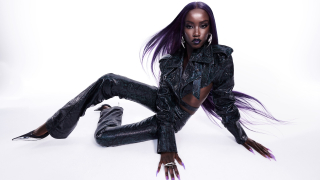Rev. Martin Luther King said more than “I have a dream.”
A lot more.
Although his writings span thousands of pages, his legacy has been reduced to stock phrases from the 1963 March on Washington speech.
In fact, King challenged the nation on everything from its treatment of African Americans – Negroes, then – to its stance in Vietnam. He repeatedly talked of “the Negro revolution,” in explaining why Blacks folks were relentlessly pressing for equality. His speeches and writings emphasized “resistance” as much as they did “non-violence.”
These excerpts from writings, interviews and books show the civil rights leader was concerned with more than dreams and content of character.
Much, much more.
1) King called for an end to America’s involvement in Vietnam.
“I knew that America would never invest the necessary funds or energies in rehabilitation of its poor so long as adventures like Vietnam continued to draw men, and skills and money…So I was increasing compelled to see the war as an enemy of the poor and to attack it as such.” Delivered at Harlem’s Riverside Baptist Church on April 4, 1967, “A Time to End the Silence” was perhaps one of Kings’ most controversial speeches. A year to the day before his assassination, King explained why he considered America’s military policy a civil rights issue. He also called for Negroes to boycott the war and become conscientious objectors. He was reviled. The New York Times editorialized against the speech and the NAACP board unanimously opposed merging the civil rights and anti-war movements.
2) King called for $50 billion in federal aid to improve the lot of African Americans
In a January 1965 interview with Playboy, King stated “It is my belief that with the expenditure of this amount, a genuine and dramatic transformation could be achieved in the conditions of Negro life in America.”
Later in the interview, he pointed out that $50 billion was less than a year’s worth of defense spending at that time. He also maintained the country would recoup the amount through “a spectacular decline in school dropouts, family breakups, crime rates, illegitimacy, swollen relief rolls, rioting and other social evils.
3) King credited emerging nations in Africa with inspiring the “Negro revolution” in America.
“The American Negro saw, in the land from which he had been snatched, a great pageantry of political progress…He knew that by 1963 more than thirty-four African nations had risen from colonial bondage. The Negro saw black statesmen voting on vital issues in the United Nations – and knew that in many cities of his own land he was not permitted to take that significant walk to the ballot box…Witnessing the drama of Negro progress elsewhere in the world…it was natural that by 1963 Negroes would rise and demand a share of governing power, and living conditions measured by American standards rather than by the standards of colonial impoverishment.”- From Dr. King’s powerful 1964 book Why We Can’t Wait.
At the invitation of Kwame Nkrumah, King traveled Ghana to see the nation’s independence celebrations in 1957. Afterwards, he began corresponding with other African leaders and working on anti-colonialism efforts, according to the book Pan-African History: Political Figures from Africa and the Diaspora Since 1787.
4) King called for Negroes to exercise self-determination
In Stride Towards Freedom, Dr. King’s 1958 account of the Montgomery Bus Boycott, he stated “If first-class citizenship is to become a reality for the Negro, he must assume the primary responsibility for making it so. …In this period of social change, the Negro must come to see that there is so much he himself can do about his plight…. The Negro can take direct action against injustice without waiting for the government to act, or a majority to agree with him…”
“We know through painful experience that freedom is never voluntarily given by the oppressor; it must be demanded by the oppressed.”- From “Letter From a Birmingham Jail,” 1963
5) King supported family planning and the use of birth control
Though conspiracy theorists have wrongly accused Planned Parenthood, its founder Margaret Sanger and current leadership of working to decrease the Black population , Dr. King not only accepted the organization’s highest honor in 1966, but used his speech as an opportunity to encourage Blacks to use family planning methods in order to better their futures:
“For the Negro, therefore, intelligent guides of family planning are a profoundly important ingredient in his quest for security and a decent life. There are mountainous obstacles still separating Negroes from a normal existence. Yet one element in stabilizing his life would be an understanding of and easy access to the means to develop a family related in size to his community environment and to the income potential he can command.”
Looking for more surprising MLK facts? Check out this list via the Washington Post.













